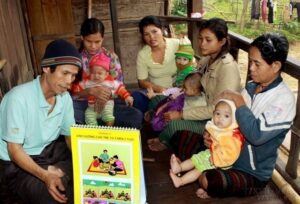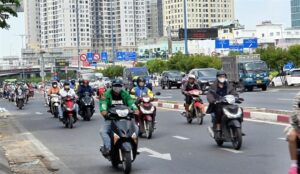PM Chính Attends 20th East Asia Summit in Kuala Lumpur

Kuala Lumpur, The Gulf Observer: Vietnamese Prime Minister Phạm Minh Chính joined leaders from ASEAN member states and partner countries including China, the United States, Russia, India, Japan, the Republic of Korea, Australia, and New Zealand — at the 20th East Asia Summit (EAS) held in Kuala Lumpur, Malaysia, on Monday afternoon. The meeting took place as part of the 47th ASEAN Summit and related summits.
The 20th EAS coincided with the forum’s 20th anniversary, marking two decades of development as a premier platform for strategic dialogue on political, security, and economic cooperation in the Asia-Pacific region.
In his address, Prime Minister Chính noted that the world is facing profound geopolitical and economic volatility, emphasizing the need for nations to enhance solidarity, connectivity, and multilateral cooperation to preserve peace, stability, and sustainable development. He urged countries to build consensus, narrow differences, and refrain from unilateral actions that could fuel confrontation, disrupt supply chains, or hinder trade and investment.
Praising the EAS’s strategic importance, the Vietnamese leader called on the forum to uphold international law and multilateralism while advancing an open, inclusive, transparent, and rules-based regional order with ASEAN at its center. He also encouraged the EAS to drive new growth engines through science and technology, innovation, digital transformation, and green transition initiatives.
Highlighting key priorities for regional peace and cooperation, Prime Minister Chính proposed three key areas of focus:
First, he underscored that maintaining peace and stability in the East Sea (South China Sea) is crucial to regional prosperity. He called on all parties to respect international law, particularly the 1982 United Nations Convention on the Law of the Sea (UNCLOS), exercise restraint, and resolve disputes peacefully. He also urged the full implementation of the Declaration on the Conduct of Parties in the East Sea (DOC) and the early conclusion of an effective and substantive Code of Conduct (COC).
Second, he reaffirmed Việt Nam’s support for a peaceful and sustainable Korean Peninsula, urging all parties to resume dialogue, avoid escalation, and adhere to relevant United Nations resolutions.
Third, he called for an end to violence in Myanmar, the resumption of inclusive dialogue, and the facilitation of humanitarian assistance to pave the way for free, fair, and safe elections. He emphasized ASEAN’s leading role in this process and encouraged partners to continue their constructive support.
EAS leaders commended the forum’s expanding role and its vast cooperation potential. With 18 member countries representing more than half of the world’s population and around 60 percent of global GDP, the EAS remains a cornerstone of regional collaboration. In 2024, trade between ASEAN and its EAS partners reached nearly US$1.9 trillion, while foreign direct investment inflows totaled approximately US$93 billion — demonstrating the region’s robust economic links.
The leaders also reviewed the progress of the EAS Plan of Action for 2024–2028 and agreed to focus resources on practical cooperation in priority areas such as innovation, digital economy, infrastructure connectivity, energy transition, green development, education, health, and disaster resilience — all aligned with the ASEAN Community Vision 2045.
Amid intensifying geopolitical rivalries, the leaders reaffirmed the EAS’s function as an open, inclusive, transparent, and rules-based mechanism, with ASEAN playing a central and guiding role in promoting peace, stability, and prosperity. They reiterated their commitment to multilateralism, equal dialogue, and trust-building, as well as to respecting international law and the UN Charter.
On regional issues, the leaders emphasized maintaining peace, stability, and freedom of navigation and overflight in the East Sea, stressing the importance of peaceful dispute resolution and the avoidance of actions that may escalate tensions. They reaffirmed the need for full implementation of the DOC and an early, effective COC consistent with international law, including the UNCLOS 1982.
The summit concluded with the adoption of two key documents — the Kuala Lumpur Declaration commemorating the 20th anniversary of the East Asia Summit and the EAS Declaration on Promoting Localised Action in Disaster Risk Forecasting and Response — both aimed at reinforcing the forum’s strategic cooperation and its vision for a peaceful, stable, and prosperous region.


